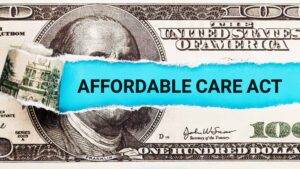
Covid-19 threw several monkey wrenches into our everyday chaotic tax season. And the IRS wasn’t able to avoid getting hit, leading to a backlog of long delays, impacting tax refunds with no immediate solution as 2021 comes to a close.
Speaking of the IRS, they finally addressed and issued guidance on some important topics impacting our clients:
- PPP Loans
- Federal Covid-19 Grant Tax-Free Income Recognition
- Expense Deductions
- S Corporation & Partnership Basis
We’ll dig into the guidance, But first, let’s start with the high-level details you need to know.
Note: The IRS released three new revenue procedures on the treatment of amounts excluded from taxpayers’ gross income connected to the forgiveness of Paycheck Protection Program (PPP) loans.
- Revenue Procedure 2021-48: Guidance on the appropriate timing for a PPP borrower to take tax-exempt income into account
- Revenue Procedure 2021-49: Guidance on how partnerships may allocate deductions, and tax-exempt income, in connection with the forgiveness of a PPP Loan.
- Revenue Procedure 2021-50: Allows eligible Bipartisan Budget Act of 2015 (BBA) partnerships to file amended Forms 1065 and issue amended Schedule K-1s to partners
Now that we’ve scratched the surface. Let’s break down the details.
When to Recognize PPP Loan Tax-Exempt Income
The first of the new revenue procedures, Rev. Proc. 2021-48 addresses the timing of recognizing the tax-free income arising from 1st or 2nd draw PPP loans.
Taxpayers have three options to recognize tax-free PPP funds as received or incurred as follows:
- Recognize tax-free PPP income when PPP expenses are paid or incurred.
- Recognize tax-free PPP income when a PPP forgiveness application is filed.
- Recognize tax-free PPP income when a PPP forgiveness application is granted.
A fourth option is available for taxpayers who filed their 2020 taxes and excluded expenses paid with forgivable PPP loan funds and who choose to use Rev. Proc. 2021-20.
- Recognize tax-free PPP income when 2020 PPP expenses are deducted on the subsequent year’s 2021 tax return.
Note: An earlier revenue procedure, Rev. Proc. 2021-20, granted relief for taxpayers who filed their 2020 taxes and excluded expenses paid with the PPP loan funds.
- Rev. Proc. 2021-20 permits taxpayers to choose to amend their 2020 taxes to deduct the excluded 2020 expenses paid with PPP loan funds or deduct the expenses in the subsequent year, 2021.
- When the COVID Tax Relief Act was enacted, it confirmed PPP loans were intended to be tax-free for Federal Tax purposes
- Taxpayers who filed before the act was passed or were unaware of the tax-free PPP loan provision in the bill when they filed their 2020 taxes may have excluded expenses paid with the PPP loan funds, in accordance with IRS procedures before the COVID Tax Relief Act.
Responsibility for Determining When to Recognize PPP Loan Tax-Exempt Income
Business entities, partnerships, S corporations, and subsidiary members of consolidated groups must determine when the tax-exempt income from a PPP loan will be recognized as received or accrued by the entity and report this pass-through information on Schedule K-1, as applicable.
Effect of Timing for Recognition of PPP Loan Tax-Exempt Income
The timing chosen by the business entity will primarily affect the calculation of a partner’s, S corporation shareholders, or subsidiary member of a controlled group’s basis for the tax year.
Tax-Exempt Treatment for Federal COVID Grants, Loans & Loan Payments
The second of the three new procedures, Rev. Proc. 2021-49 provides guidance to partnerships and consolidated groups regarding allocating the tax attributes of the tax-exempt PPP loan funds to partners or subsidiary members. It also clarifies tax treatment for other federal COVID grants and benefits.
The following federal COVID grants and benefits are eligible for Federal tax-exempt income treatment, including an increase in basis:
- PPP loan funds eligible for forgiveness
- Emergency EIDL Grants
- Principal & Interest payments of covered SBA 7(a) loans
- Principal & Interest payments of covered SBA Community Advantage Loans
- Principal & Interest payments of covered SBA Microloan products
- Shuttered Venue Operator Grants
- Extended EIDL grants
- Targeted EIDL Grants
- Restaurant Revitalization Grants
Partnerships May File Amended Returns for 2020 by December 31, 2021
Finally, Rev. Proc. 2021-50 offers relief for a partnership subject to BBA (Bipartisan Budget Act of 2015) by permitting the partnership to file an amended Form 1065 for 2020 instead of an (AAR) administrative adjustment request to take advantage of these new procedures.
Note: Partners receiving an amended K-1 under the Rev. Proc. are not required to amend their returns by December 31, 2021.
ABBA Partnership choosing to file an amended Form 1065 for the tax year 2020 to take advantage of these new procedures, will file 2020 Form 1065 with the amended box checked on Form 1065 and all applicable K1s. The partnership must also write “FILED PURSUANT TO REV PROC 2021-50” at the top of Form 1065 and attach a statement with the exact phrasing to all applicable K1s. If your tax software supports the new rev-proc-verbiage, the amended 2020 Form 1065 may be e-filed. Otherwise, the amended 2020 Form 1065 may be filed by mail.
ABBA Partnership, currently under audit, may file the amended Form 1065 and provide a copy to the auditor. If a BBA partnership has already filed an AAR for 2020, they may still file an amended 2020 Form 1065 to take advantage of the new procedures.
Tax Planning for Tax-Exempt Income Recognition Timing
Generally, the decision to amend the prior year 2020 business entity tax returns will depend on two issues:
- The related partners and S corporation shareholders can benefit from lower pass-through taxable income for 2020 in the case of businesses who filed their 2020 tax returns and excluded expenses paid with PPP forgivable funds.
- The related partners and S corporation shareholders can benefit from increased basis from the tax-exempt income, which may permit them to deduct a 2020 pass-through K-1 loss that their original 2020 basis calculation may have limited before recognizing the basis increase from tax-exempt income.
Consider each entity on a case-by-case basis. Suppose the partners or shareholders didn’t suffer a 2020 loss imitation due to basis issues. In that case, it will be simpler and easier to recognize the 2020 PPP or other COVID grant tax-exempt income in 2021 as permitted by the new procedures. Another consideration will be comparing the partners’ or S corporation shareholders’ 2020 tax rates with their anticipated 2021 tax rates for determining the benefit of amending for changes to COVID benefit reporting.
Examples of Entities Which May Consider Amending 2020 Tax Returns
Partnerships or S corporations that included the forgivable portion of the PPP loan on the 2020 Balance Sheet.
- Amend to remove the forgivable PPP loan balance from the balance sheet and report the PPP forgivable funds as tax-exempt income on Schedule M-1, which will increase the partners’ or shareholders’ basis for 2020.
Partnerships or S corporations that excluded certain 2020 expenses paid with PPP forgivable loan funds as an M-1 adjustment.
- Amend to deduct the 2020 PPP loan expenses previously excluded from the 2020 tax return if the entity chooses not to deduct the expenses in 2021 using Rev. Proc. 2021-20.
Partnerships or S corporations that may have reported some other tax-exempt COVID benefits as taxable income in error.
- Amend to reclassify the tax-exempt COVID benefit as nontaxable income and report it on Schedule M-1.
Further IRS Guidance: Obtain automatic consent to change accounting methods
On December 16, the IRS released a 70-page document detailing Rev. Proc. 2022-9, which provides guidance under section 446 on how certain taxpayers and businesses can automatically obtain consent to change accounting methods to comply with final regulations issued in January 2021.
Note: The final regulations apply to tax years beginning on or after January. 5, 2021, or for agreements entered into in those tax years.
Recent Stories


Trump Accounts and New Form 4547


The ACA Enhanced Subsidy Expires





